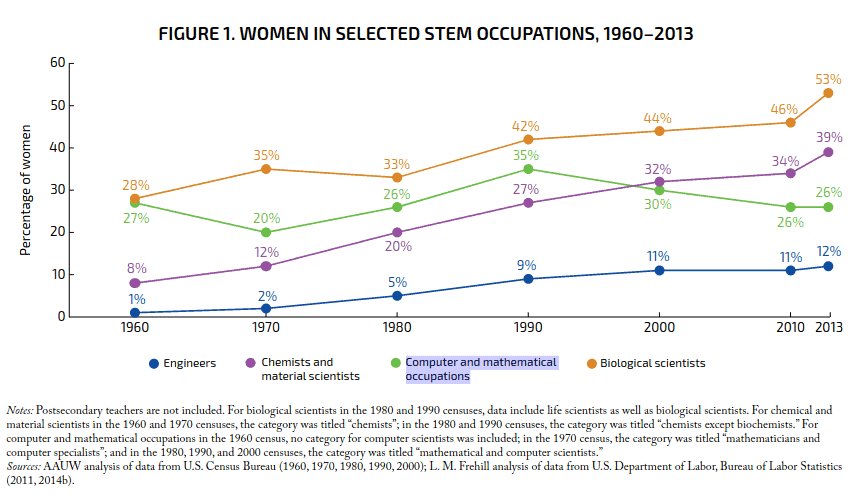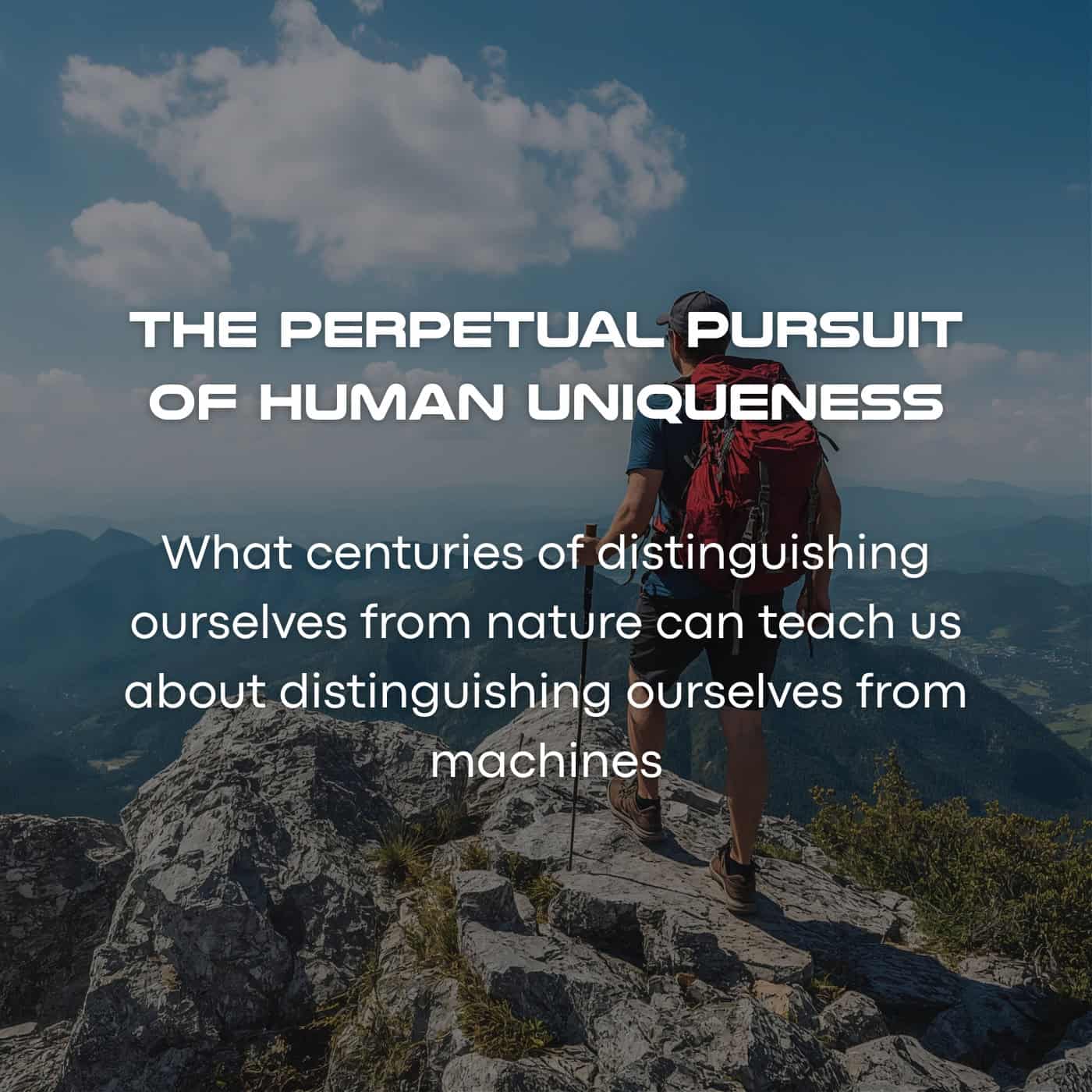Women working in technology face harassment on a daily basis. As men, we are responsible to police our own behavior to put an end to this. From the gender gap to gender bias to full on sexual harassment and rape, this is a very real and very large problem. The only way to solve it is by being aware, being vigilant, and being downright decent to each other. This post is a look at the problem as I see it, and a sketch of how to solve it – man to man.
Gender in Tech
One of my favorite, and most overused quotes is William Gibson’s statement that the future is already here, it’s just not evenly distributed. While I believe he was referring specifically to the accessibility of technology based on wealth and location, I find that it also applies to social advancements. Case in point: While some communities are focused on advancing equality, diversity, and inclusion of smaller and smaller groups of minorities – as they should – many others are still struggling with very basic gaps between two of the most fundamental groups of humans: Men and Women.
The American Association of University Women (AAUW) has been doing some wonderful work in this area, including compiling statistics that highlight what they call The STEM Gap: “Women make up only 28% of the workforce in science, technology, engineering and math (STEM), and men vastly outnumber women majoring in most STEM fields in college.” What’s even more disturbing to me, is that while the gender gap in many STEM fields has been slowly narrowing over the past 50+ years, the percentage of women in ‘computer and mathematical occupations’ (what I’ll call ‘technology’ in this post) was actually a point lower in 2013 compared to 1960.
That chart is from a great AAUW report titled Solving the Equation – The Variables for Women’s Success in Engineering and Computing. If you are an educator or employer within the tech industry, you should find time to read it in its entirety.
It Gets Worse
A three to one gap in representation is bad enough. It means that many girls are being robbed of the opportunity to thrive in a career they would love. That many boys may be pushed into a career they don’t. And it means that organizations, institutions, and society at large are missing out on a more open and diverse perspective on some of our most important topics and projects. But it’s worse than that. In addition to the gender gap in the tech industry, there is bias at play too.
Bias is everywhere, and so far humans have proven incapable of avoiding it. But there are different flavors and intensities of bias. A 2020 article from Western Governors University (WGU) points out that gender bias exists in many fields – often against men. “This can happen in nursing, education, childcare, communications industries, and more.” But these biases usually amount to “stereotypes and sexist comments about their work.” And while that sucks, it’s nothing compared to what women in tech face on a daily basis. Here are some examples from that article:
- Women not being hired due to male-dominated workplaces.
- Unequal pay.
- Unfair interview questions about family and home.
- Diminished responsibility.
- Unequal access to restroom facilities.
- Lack of promotions.
- Sexist conversations that make women feel uncomfortable.
Much Worse
Margaret Atwood said that “men are afraid that women will laugh at them” while “women are afraid that men will kill them.” Whoa. I clearly remember the first time someone repeated that to me. And I remember the reality of it setting in as the initial shock wore off. While I’m sure there are many exceptions, think about this in the context of your daily life (I’m talking to the men here): When you hear footsteps behind you in an empty parking garage, how often do assume there might be a man there to rape and kill you? What about on a first date? Or in a job interview? As we’ve seen over and over again, these are real threats that women frequently have to consider.
In addition to the examples of bias described in the section above, I’ve heard stories far worse, stories that make my stomach turn. I know several women who were approached during various technology industry conferences by male colleagues and asked to speak privately. Assuming they were going to talk about something relevant to their expertise in a quieter part of the venue they agreed, only to be verbally and/or physically assaulted. I know women who’ve had men follow them through a hotel (at an industry conference) back to their room – creepy and scary!
Another personal moment of awakening, even more powerful for me than the first time I recognized the truth in that Atwood quote, came at a friends wedding reception. I was sitting next to another friend’s 14 year old daughter during the meal, and we were chatting. As the dinner wore on she made a comment that really shook me. She said that she could tell when the adults were getting drunk because that’s when her Mom’s male friends started hitting on her. What the actual fuck. And based on the probabilities, some of you guys reading this are those guys. Is it you? Or is it your friend, brother, or son?
Gender based harassment and general misogyny are real problems in tech, and we must address them in order to mature and grow our industry.
What To Do?
First and most obviously, please, don’t be an asshole. Don’t even be a creep. If you can’t treat the woman next to you with respect as a colleague – leave her the fuck alone instead. Don’t tell women to smile. Don’t ever put your hands on them without their express consent. And always listen when they say “no” – even if you think she’s joking, not serious, or whatever excuse you might have.
Once you’ve found a way to keep yourself under control as a decent human being, it’s time for step two: Call people out, even (maybe especially) if it’s uncomfortable. If you see another man doing something fucked up – name it and shame it. It is on you to help raise the consciousness of those around you. What else are you here for? It’s as easy (and as hard) as saying “that’s not cool, bro.”
As you progress down this journey, beware of chauvinism. You’re not being an ally because men are better than women, nor because women are weaker, or anything at all like that. Be an ally because it’s the right thing to do. Because you’d want her to do the same for you, your family, or your friends. And don’t start thinking you’re better than the guys you’re calling out either. Stay vigilant of your own biases, flaws, and areas for improvement. We can all, always get better.
And finally – be proactive. Don’t wait for a crude colleague to make a bad move; talk about these issues. Bring it up in conversation. Write a blog post. Heck, write a song or a poem, paint a picture, give a talk at your favorite conference. Men need to hear this from other men, and not only after they’ve already ruined a woman’s life, or even just her day.
Photo is of Grace Hopper.






